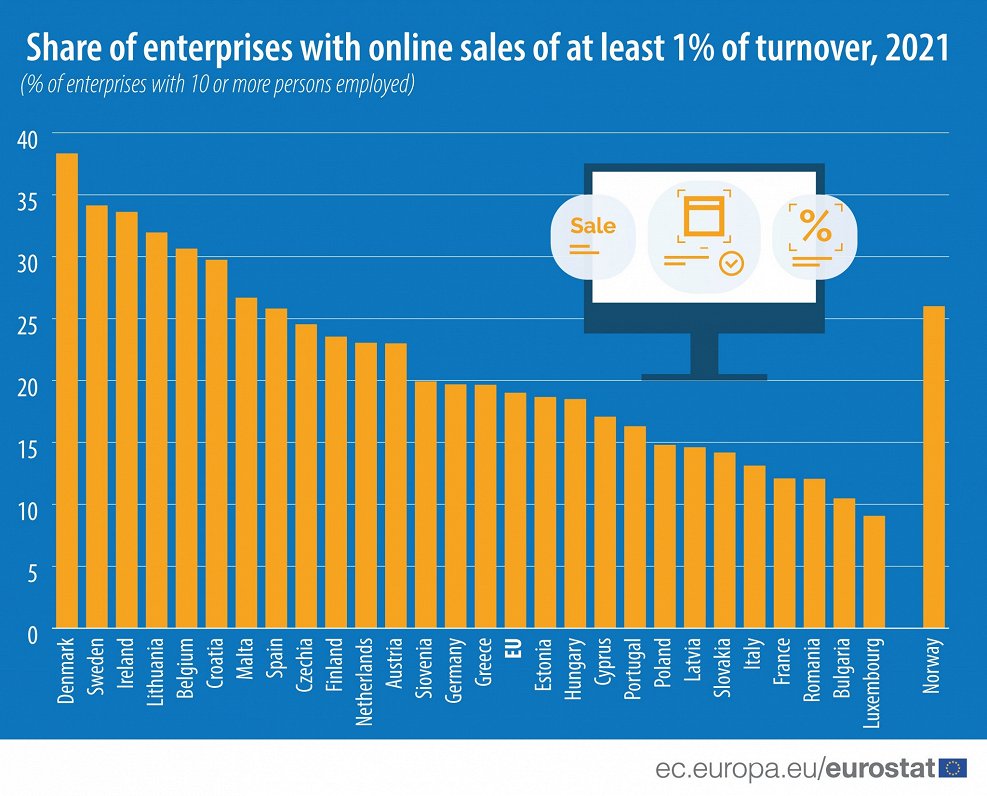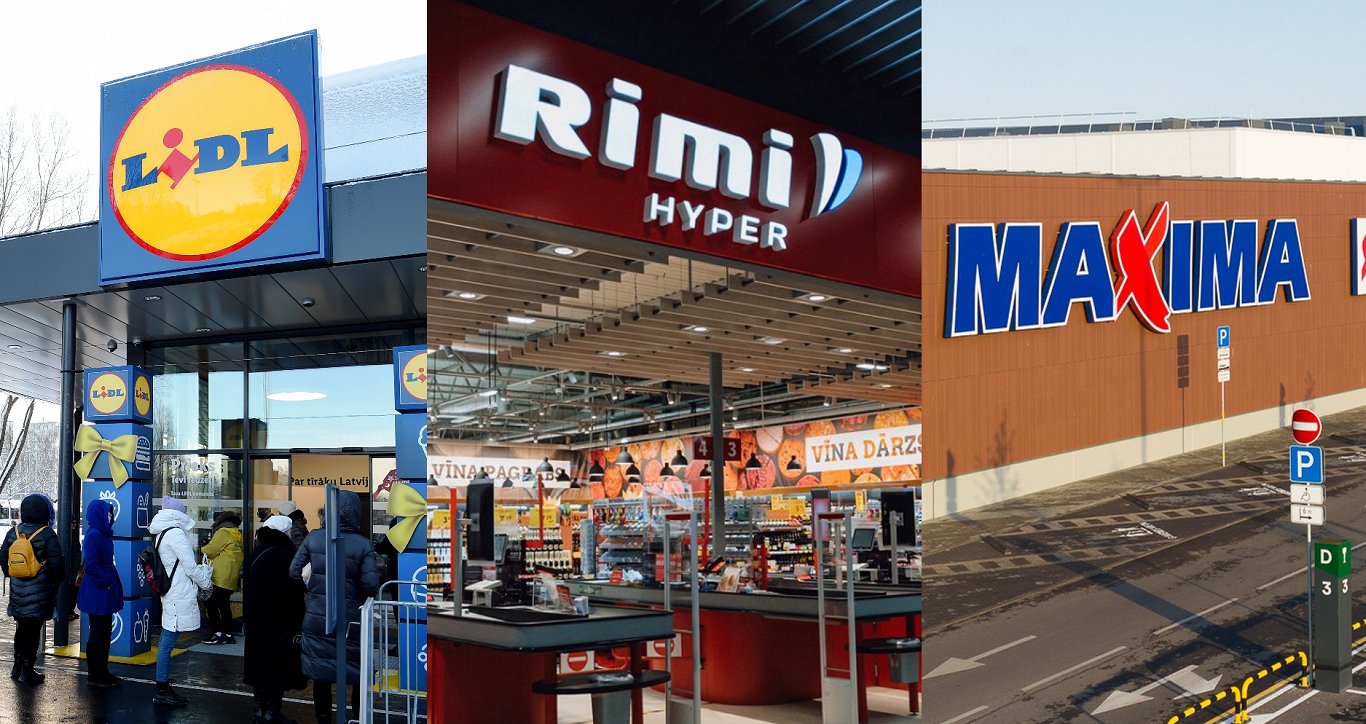In 2020, 22% of EU enterprises had e-commerce sales and 19% reported that their online sales reached at least 1% of their total turnover, a 1 percentage point (pp) increase compared with 2019 and 6 pp up from 13% in 2010.
For Latvia the figures were 17% of enterprises having e-commerce sales (up from 16% in 2019) and 15% having online sales of at least 1% of turnover (up from 12% in 2019). However, that does put Latvia in front of several larger economies, including France and Italy.

"The steady growth in the use of e-commerce sales in many countries was heightened by the coronavirus pandemic and movement restrictions, which led both customers and businesses to an increased interest in online sales," said Eurostat.
Denmark recorded the highest share of enterprises selling online (e-sales of at least 1% of their total turnover) among the EU Member States with 38%, the same share as the previous year. Ireland and Sweden came in second with 34% each, registering a 1 and 3 pp increase compared with 2019.
Belgium and Finland registered the highest increase in enterprises selling online (e-sales of at least 1% of their total turnover) in 2020, both up by 5 pp to 31% and 24% respectively. In contrast, Romania recorded the highest decrease among the Member States, down by 6 pp to 12%, followed by Czechia (-5 pp to 25%) and Portugal (-4 pp to 16%).
Similar to previous years, and based on the location of the customers, it was most common to sell to clients in the own country (22% of enterprises), with sales to clients in other EU countries (9%) and the rest of the world (5%) less frequent.






























